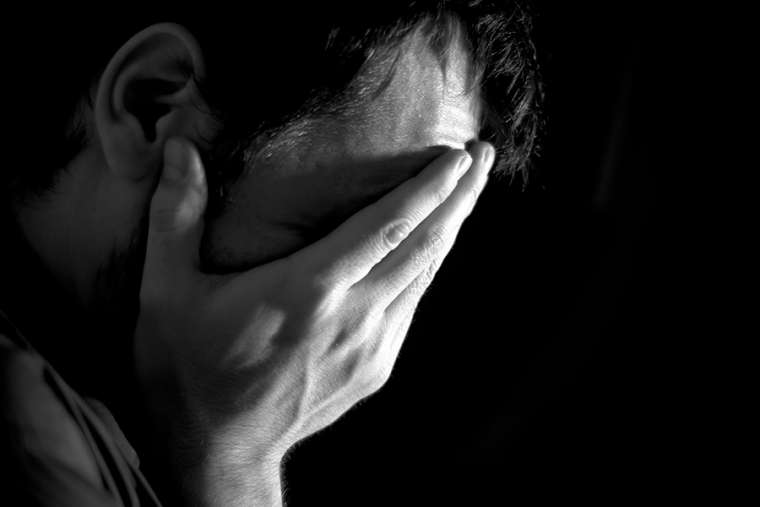
Psychological problems with cancer patients
I am Shaival Agrawal, a 41 year-old businessman. My mother is 65 years old and has been diagnosed with cancer of the stomach in the second stage just a few days back. I live in a joint family, which comprises of three brothers including me with their families and my parents. The whole family is in a state of shock over this news. What sort of psychological problems should I expect – both for my mother and for our family? How should I tackle those problems? Please advise.
The diagnosis of cancer creates a crisis that requires patients to quickly adapt to catastrophic news. They must try to control the level of emotional distress while making crucial treatment decisions. Major concerns are the fear of death, dependency, disfigurement, disability, disruptions in relationships, role functioning and financial status. The psychological factors that determine the reaction depend on the preexisting character style, coping ability, stage of life and the impact and meaning of the cancer at that stage of life. There may be various reactions ranging from extreme anxiety, sadness, fear and anger to numbness and lack of reactivity. Guilt and attribution may play a major role. The patients may become highly focused and seek information aggressively or become confused, paralyzed and unable to concentrate. Physical complaints may increase and daily activity, appetite and sleep are often disrupted.
You have to become active on several fronts. The medical treatment to get a rapid relief of symptoms must occur. The psychological interventions are geared at lowering distress, increase self-esteem and self-image, decrease anxiety and give her a better sense of control. The two major issues are the reality of a shortened life span and the coming death- the mysterious and frightening absolute that it is. The chief psychological problems are adjustment problems with the disease, anxiety and panic problems, feelings of worthlessness and excessive guilt, intense self-loathing, recurrent thoughts of death, suicidal wishes and thoughts. The stressors that are more particular to cancer are – the negative aura that surrounds it, the treatment and its inevitable adverse effects, the resistant infections to which cancer patients are prone, the ambiguity of many treatment decisions which often breeds intrafamilial conflict and hostility, the unsettled social and ethical climate that surrounds terminal care decisions and the extreme emotional reactions that are projected onto family members in the form of overvaluation, ingratiation, and cover bargaining followed by disillusionment and anger. The family has to provide support to overcome these problems apart from psychological medicines. The family members are expected and expect themselves to contain their own reactions and support your mother. You have to share the responsibility for decision making by researching and selecting options. In today’s budget-conscious climate and vanishingly short hospital stays, an ever-increasing amount of care is being thrown onto the family. Your family will have to absorb massive expenses and suffer significant downward mobility. You may have to compromise on the work front in order to accommodate the need for flexibility. Your mother’s role and contribution must be replaced, a difficult task indeed. The new demands must be folded into ongoing functioning. Some members develop increased emotional needs that must be met. All the standard family functions, emotional nurturing, feeding, clothing, educating and socializing must continue unabated. Change is the only constant thing during a cancer illness. Therefore adapting to change is the need. It is useful to divide events into immediate and long-term phases. An immediate event has to met with effective mobilization of family members, psychologically, there may be an asynchronous reaction with the denial of some and the pessimism of others causing significant friction. The family members may protect themselves under the guise of protecting each other by colluding in a conspiracy of silence that can rigidify and be hard to change later. There is a universal need for information, to decrease uncertainty, to help the family solve the problem effectively and to ensure better communication, cohesion and emotional containment. In the long-term phase, the family must return to developmental and maintenance tasks, which may expose conflicts between the patient’s continuing needs and the needs of the others. Initial mobilization is replaced with a paradoxical increase in psychological symptoms. Families isolate themselves, even when outside support is available and may put major decisions on hold. The stigma of cancer often propels people irresistibly into magical thinking. The universal concerns are the often-justified fear of failure of traditional treatment, the hope for a miraculous cure and the desire to achieve mastery and control. Improving attitudes as a way of influencing cancer is the worst myth because it leads so readily into blaming the patient. On can occasionally see desperate family members grasping at explanations and trapping the patient ever deeper in a web of guilt and responsibility as a means of coping with their own grief and frustration. Every family is permeated by stories that dictate unconscious responses to illness, dependency, loss and the other fundamental life experiences. They underlie behaviors that seem idiosyncratic or bizarre. Explaining the treatment can often minimize scapegoating and polarization. High family cohesion remains a positive factor of good outcome. Faith in religious practices and its meaning can have an impact on the coping response. It can be a source of strength or guilt at all stages of the disease ranging from the earliest disbelief through to the poignant life review of the late stage. Working in harmony with a spiritual guide can often achieve positive results. The study of psychological aspects of cancer continues to lead to many fundamental human issues illuminating the families’ interdependence on each other and the bedrock existential confrontations with death and the sense of self.



